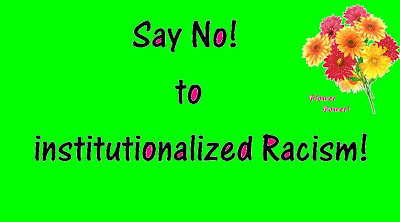Dienstag, 19. Juni 2007
Sonntag, 17. Juni 2007
General Definition of Asian-Americans
An Asian American is generally defined as a person of Asian ancestry and American citizenship, although may also be extended to include non-citizen resident Asians as well.The term Asian American was used informally by activists in the 1960s who sought an alternative to the term Oriental, arguing that the term was derogatory, and colonialist. Formal usage was introduced by academics in the early 1970s, notably by historian Yuji Ichioka, who is credited with popularizing the term. Today, Asian American is the accepted term for most formal purposes, such as government and academic research, although the term is often shortened to Asian in common usage.
As with other racial and ethnic groups, formal and common usage have changed markedly through the short history of this term. The most significant change occurred when the Hart-Celler Act of 1965 eliminated highly restrictive "national origins" quotas. The new country-specific quotas enabled significant immigration from every country in Asia, which led to dramatic and ongoing changes in the Asian American population. As a result of these population changes, the formal and common understandings of what defines Asian American have expanded to include progressively more of the people with ancestry from various parts of Asia.
Recent Rasicm Part 2
Homophobia controversy
On February 14, 2007, Hardaway made a series of remarks that were widely criticised as homophobic. During an interview on Dan Le Batard's radio show on Miami's 790 the Ticket concerning the recent coming out of retired basketball player John Amaechi, Hardaway was asked by Le Batard how he would deal with a gay teammate. Hardaway said he "wouldn’t want him on my team." He added that he would shun a gay teammate and wouldn't want him in the locker room. In response to a question from Le Batard, Hardaway said that he might request that he or a gay teammate be traded to another team.
When Le Batard asked Hardaway if he realized that his remarks were homophobic and bigoted, Hardaway responded, "Well, you know I hate gay people, so I let it be known. I don't like gay people and I don't like to be around gay people. I am homophobic. I don't like it." Later that day, Hardaway stood by his views in an interview with Miami CBS station WFOR-TV.
Later in the day, Hardaway apologized for the remarks during a telephone interview with Fox affiliate WSVN in Miami. "I'm sorry. I shouldn't have said I hate gay people or anything like that." He further apologized on February 15 in a statement released by his agent.
On February 15, the NBA responded to Hardaway's comments by removing him from its All-Star Weekend activities later that week. Commissioner David Stern released a statement saying that "It is inappropriate for him to be representing us given the disparity between his views and ours." Hardaway's employer, Trinity Sports, owner of the Anderson-based CBA Indiana Alley Cats, dismissed him from his position as Chief Basketball Operations Advisor and the CBA issued a statement distancing itself from Hardaway's remarks.
Recent Rasicm Part 1
Mocking Chinese Language
On December 5, 2006, O'Donnell made a comment in reference to the November 29, 2006 appearance on The View by Danny DeVito who had been up and celebrating most of the night. O'Donnell was amazed that the controversy had become such an international media news item, and joked that it was being talked about as far away as China. "You know, you can imagine in China it's like, 'Ching-chong, ching-chong. Danny DeVito. Ching-chong, ching-chong-chong. Drunk. The View. Ching-chong.'"
The remarks sparked a backlash, as many interpreted her comments as a "mockery of the Chinese language." O'Donnell responded via her publicist that she is a comedian in addition to being a talk show co-host and that was part of her sense of humor.
If you want to see it, here you have a YouTube Link: http://www.youtube.com/watch?v=A0HtTReGt08
Mittwoch, 16. Mai 2007
L.A. Race Riots 29/04/92
Thousands of people in Los Angeles joined in what has often been characterized as a race riot involving acts of law-breaking compounded by existing racial tensions, including looting, assault, arson and murder.
In all, 53 people died during the riots. In the Korean American community, the riots are known as Sa-I-Gu (사이구), Korean for "4/29," or April 29.

